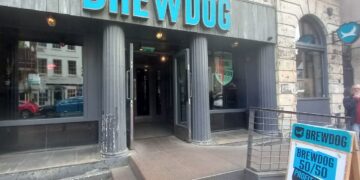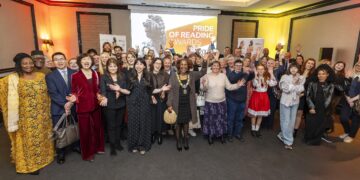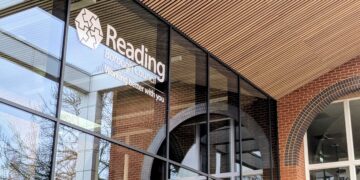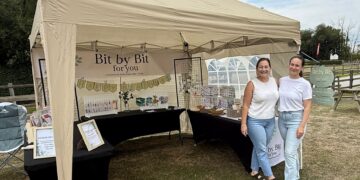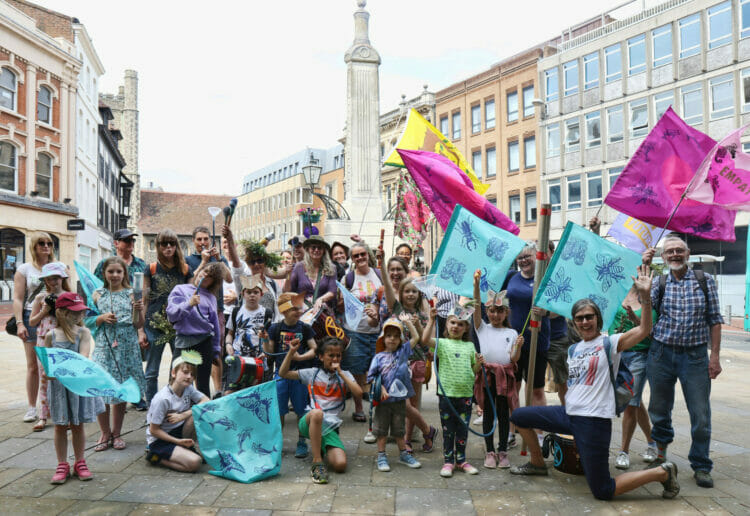ON SATURDAY, June 16, Reading’s Climate Festival reached a fever pitch as the climate parade took to the streets.
As part of the festival, Royal Philharmonic Orchestra (RPO) held a junk instrument making session, where attendees crafted functional instruments from old materials, organised by Nature Nurture CIC.
Youngsters from around Reading were invited to bring their handmade instruments and join in the parade as part of the Samba band performance.
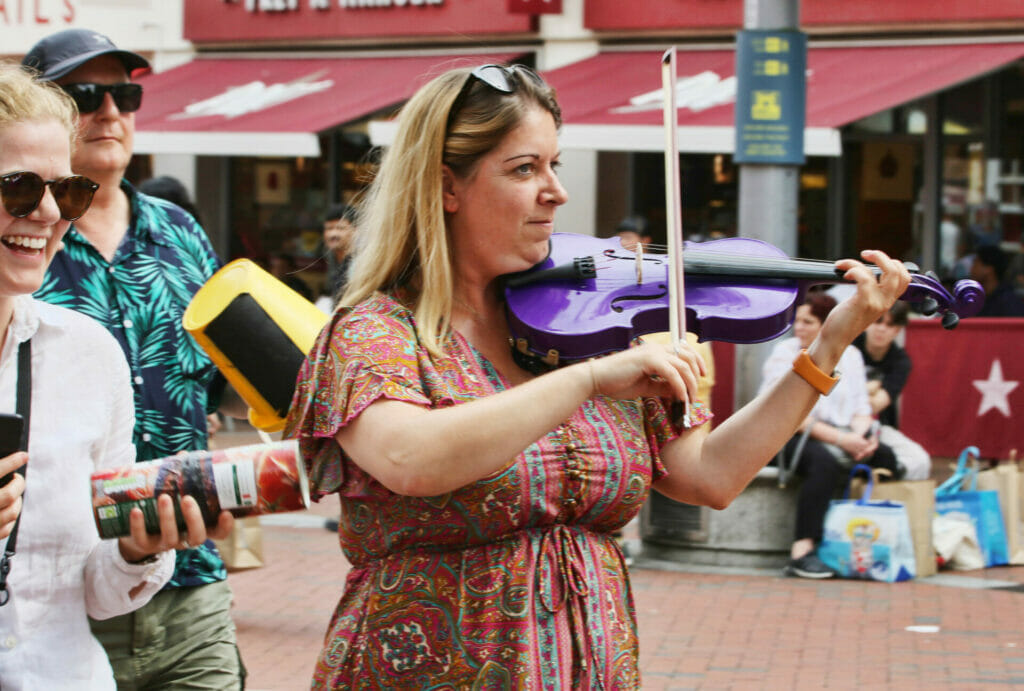
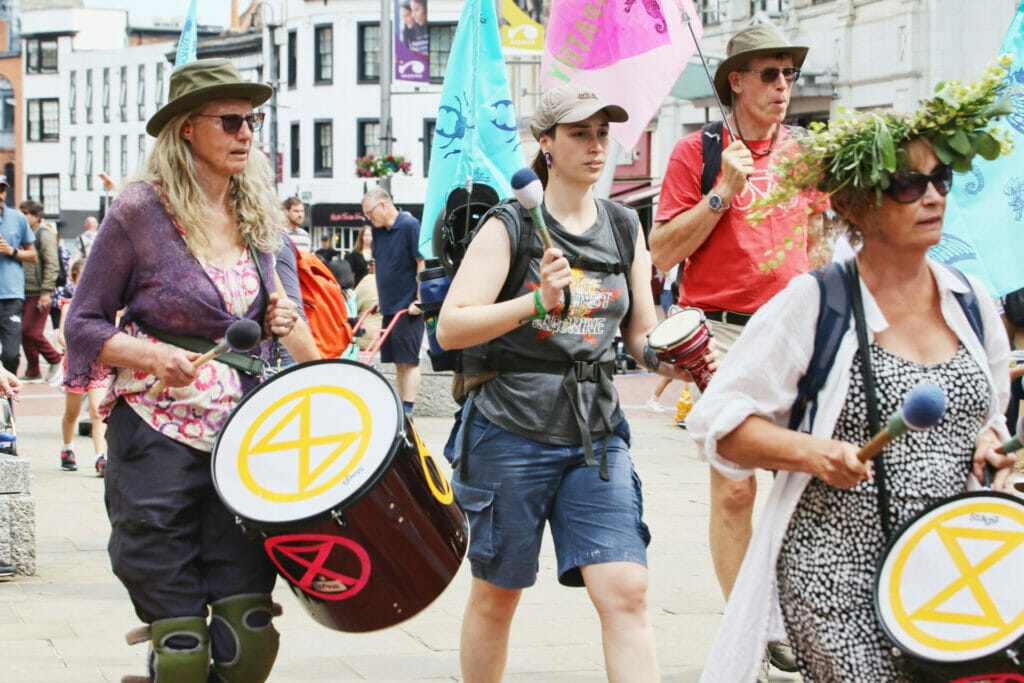
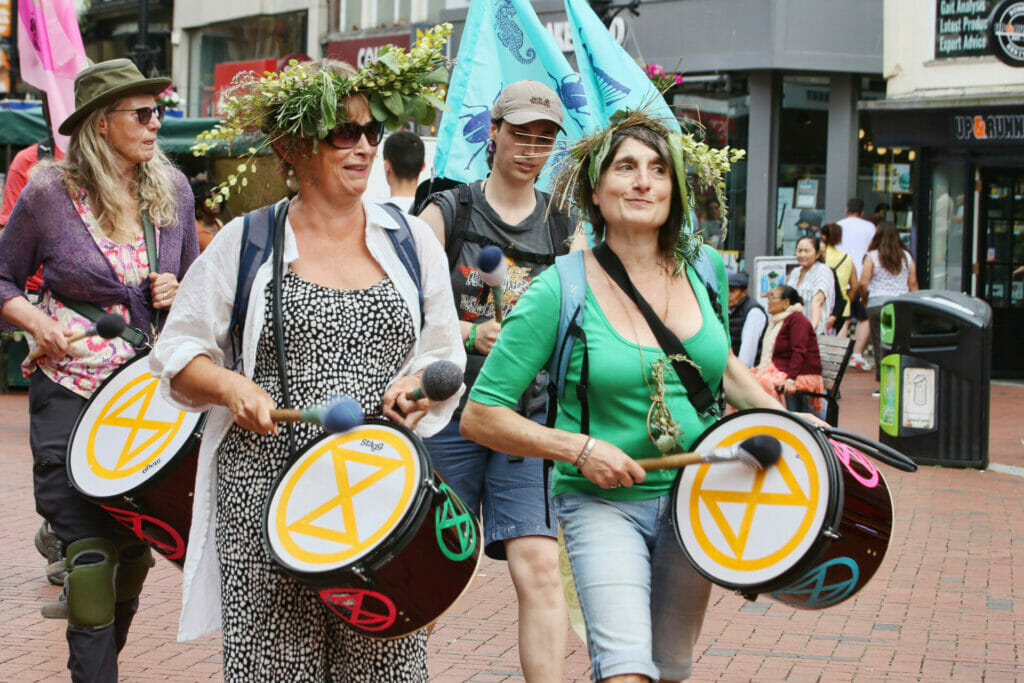
Tracy Rawlings Church of the Reading Climate Change Partnership said of the parade: “The children taking part made junk instruments with the orchestra.
“They’d made drums, shakers, and other percussion, but we also had some made from lengths of hose pipe with funnels on one end and a mouthpiece on the other, which made an interesting kind of throaty sound.
“We had really positive feedback about the workshop and they were clearly having fun playing them as well– the RPO bring a real expertise with them and they were brilliant at engaging the children.”
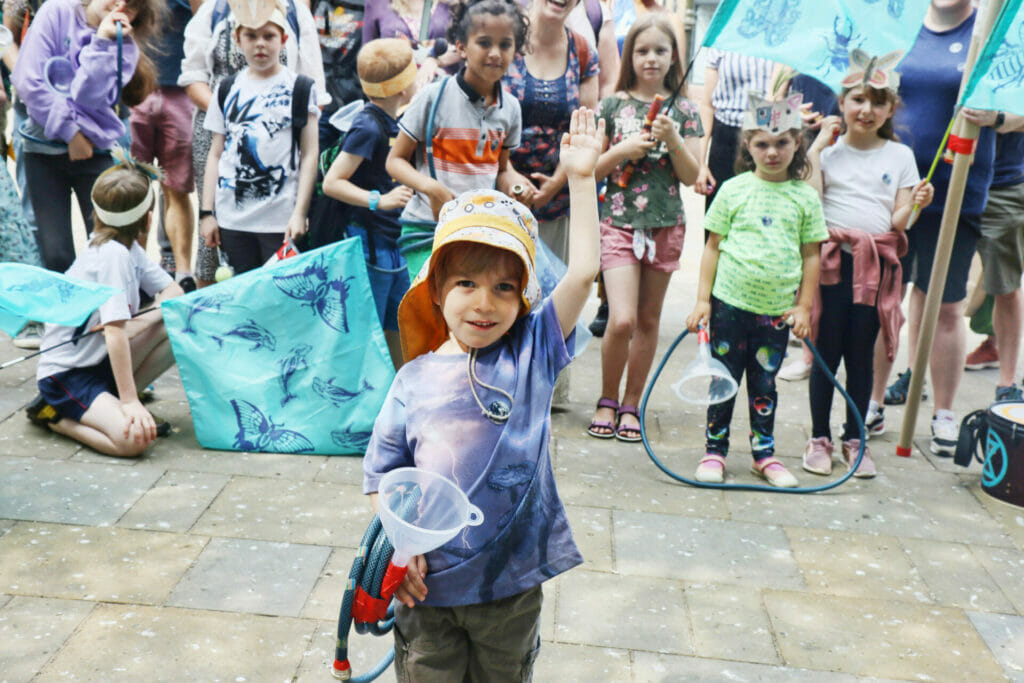
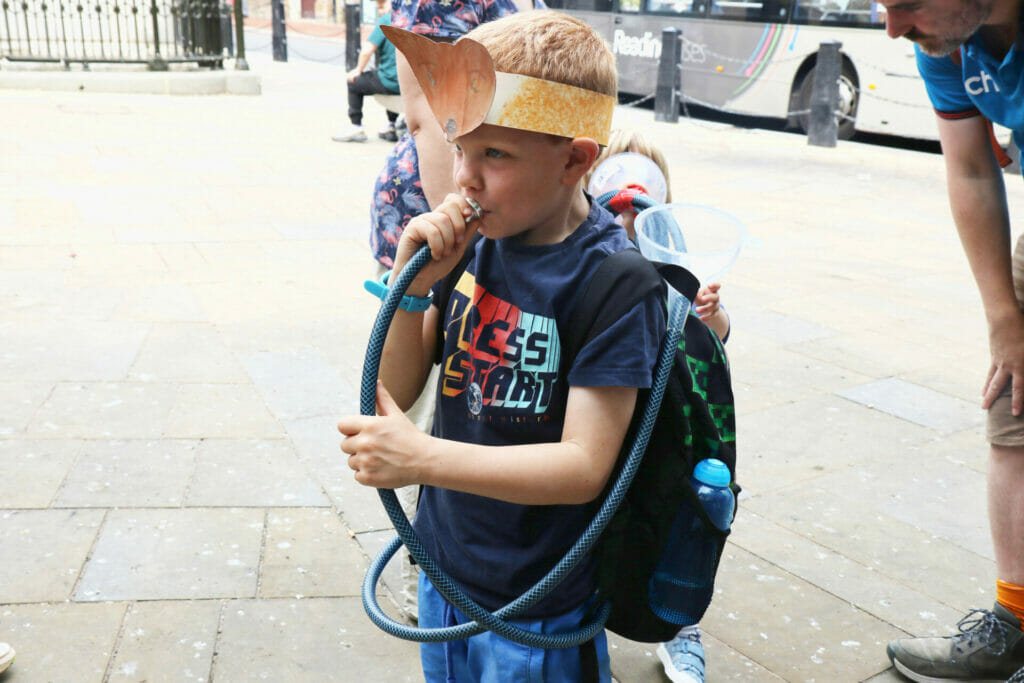
Of the festival, she said: “What we’re trying to do through the festival and other engagement activities is to get people thinking about climate change and its impact.
“There’s a biodiversity challenge as well as a climate challenge and we need to make sure that biodiversity is protected and enhanced.
“Getting children and families involved, it needs to be fun– there’s really no point preaching to people telling them what to do, that’s never going to be effective.”

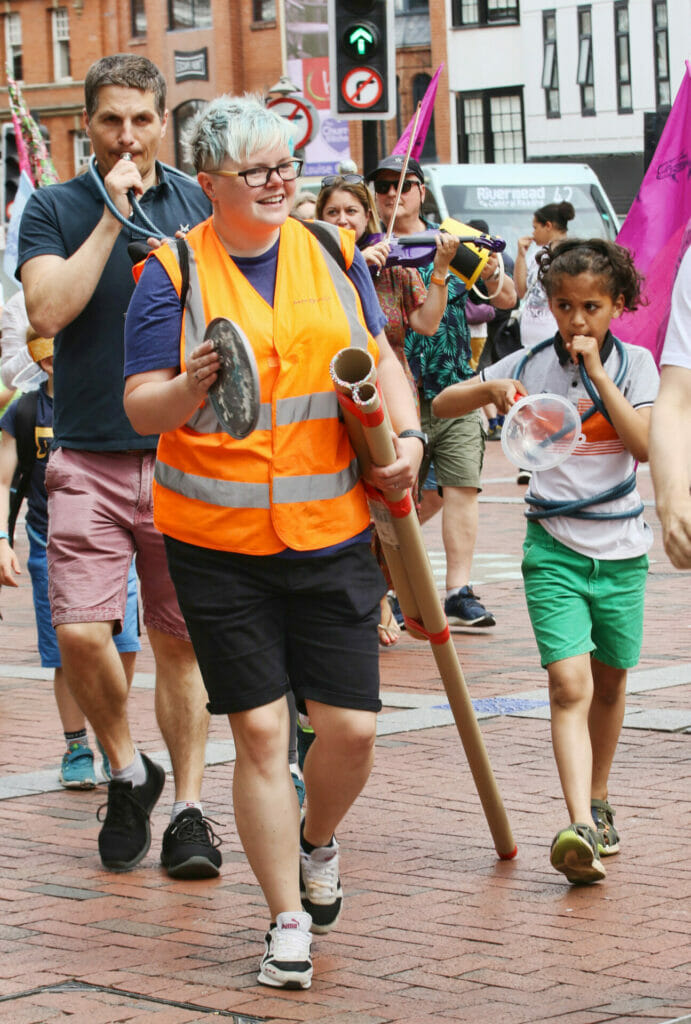
She also explained: “I think we have a really strong cultural heritage in Reading, and we’re really good at showcasing our culture and history.
“We’ve also got a great reputation for the university in terms of their expertise on climate science, and Reading has actually done really well with reducing its carbon emissions– so far, we’re one of the one of the top performing boroughs on that.”
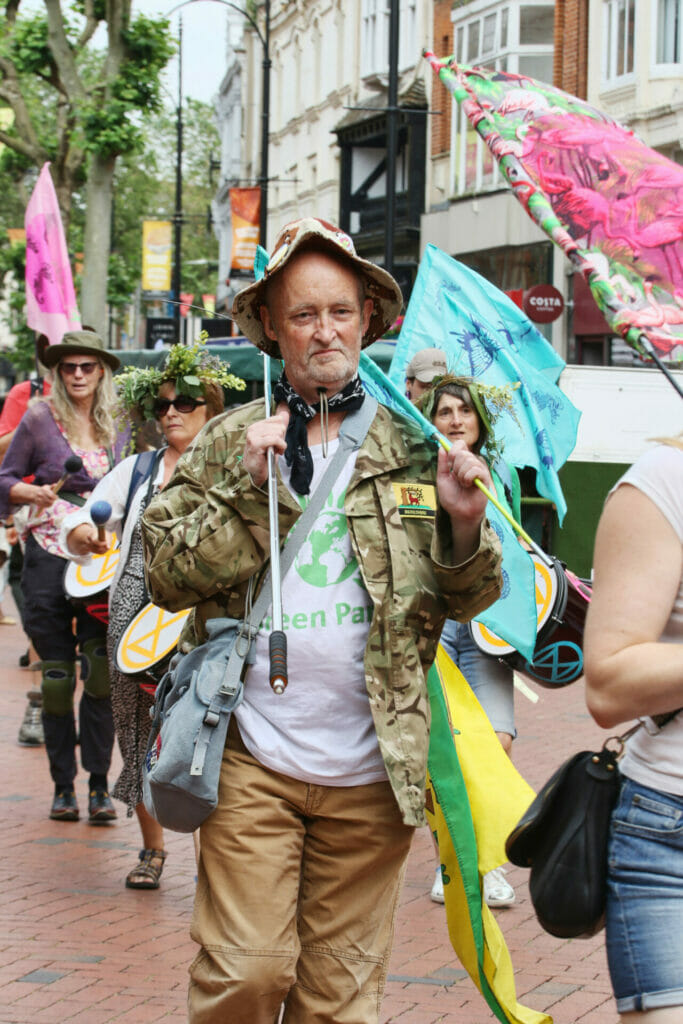
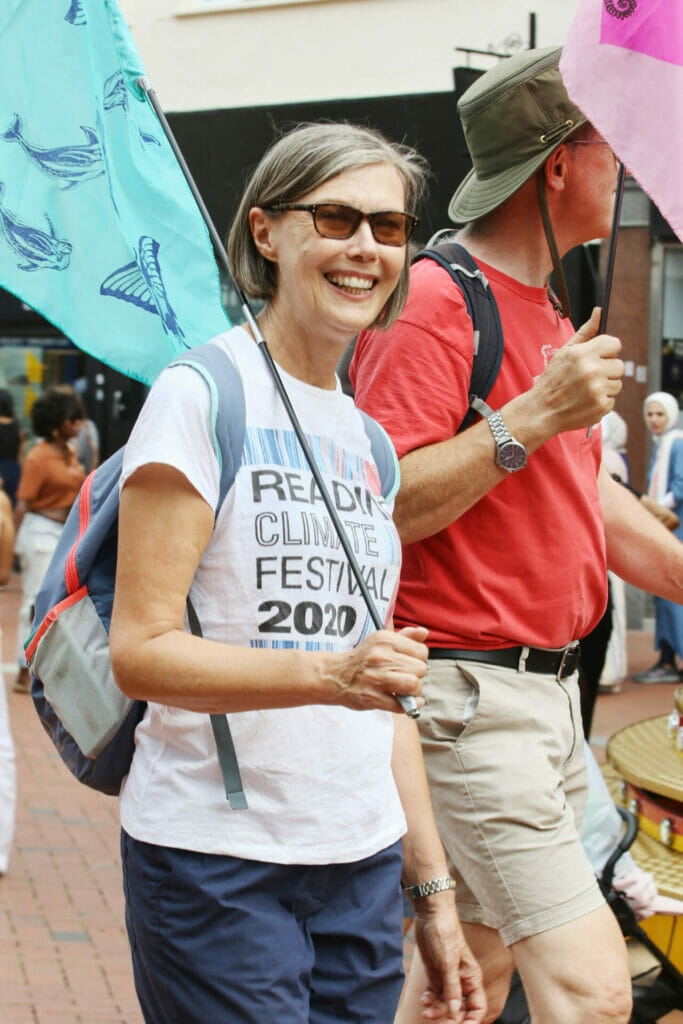
She noted that Reading Borough Council is among the local authorities to receive an A-rating from the Carbon Disclosure Project (CDP) two years running.
“Bringing those artistic and scientific strands together is a really good way of leveraging those advantages.
“So we’re giving an enormous thank you to all the organisations who contributed content and all of the people who participated, either by attending events or however they supported us.
“We would also like to thank Nature Nurture for running the workshop– this is a shared challenge.
“Collaboration is a fundamental part of the solution so it was really great to see people coming together around the topic.”
More information about how to take part in Reading’s action on climate change is available via: readingcan.org.uk



